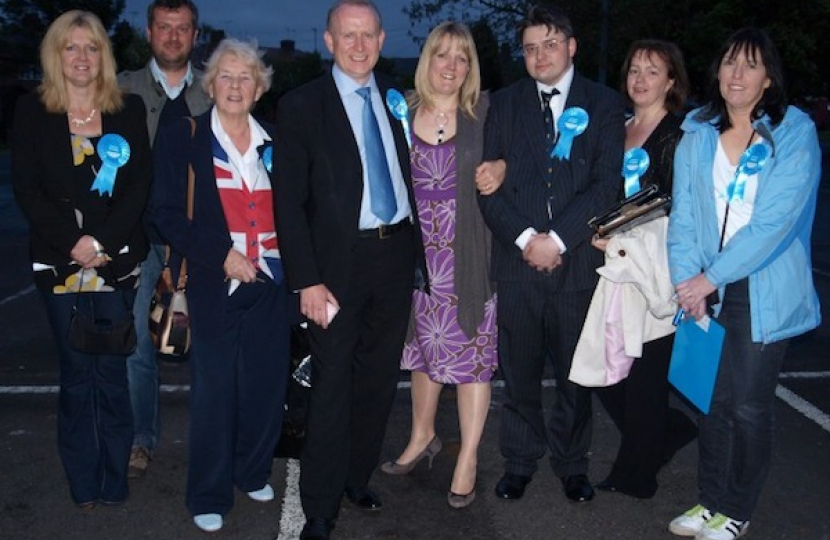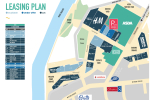
Hindsight is a wonderful thing, so what lessons have I learned as a councillor, and what advice would I give anyone taking their first steps towards becoming a councillor today?
Politics is local
If you haven’t already done so, then make sure you get involved with local community and residents’ groups, if you have a Parish or Town Council, then go along and consider joining it.
I represented a mixed rural and suburban ward, which had five parish councils. They all had similar issues but different priorities and I only knew that because I endeavoured to attend them all and the various local community events.
Canvassing residents in a local area is of course a great way of finding out what the local issues are, as well as voting intentions. In addition to knocking on doors, social media can also be used positively for canvassing and campaigning.
Some issues are universal e.g. “fill the potholes, empty the bins and don’t waste your resident’s money” – but others are far more local, none more so than Planning, which can often erupt out of nowhere. Therefore understanding Planning is vital.
Be prepared
Find out where the Planning Committee meets, or if it is webcast, then have a look at the paperwork and go along to watch. As a Borough Councillor, I was able to call Planning Applications into the Planning Committee but I always made sure I had proper reasons to call them in, and if I did, there would be local residents who would be willing to speak on the grounds I had called it in. Not liking something is not a good enough ground to call an application in.
Councillors are often reluctant to join the Planning Committee, a wise and experienced councillor once forewarned me:
“Most of the time, you will upset half of the people, but if you’re really clever, you can upset everyone”.
Oddly, my one regret about my time as a councillor was not joining the Planning Committee sooner, which I ended up enjoying serving on for the past few years.
Listen and learn
Most importantly, politics is about people working with people, so spend some time with your local Conservative Councillors or local Council Candidates, for example by offering to help them canvass. The offer of assistance will be appreciated and the time you spend with them will help you get a much better understanding of the commitment involved with the role and how it has evolved over the years.
For example, the use of video meetings has made some aspects of the role easier; this has especially reduced the number of non-statutory in-person meetings; which for a Council with a large geographic area, can mean a large amount of travelling time.
Social media is a two-edged sword
The flip side of modern technology has been the way social media has invaded the role. When I started 12 years ago, it was mainly telephone and e-mails – within “office hours”. Over recent years, “tagging” has meant that keeping an eye on social media over the weekend is becoming the norm but if you are able to respond or report issues, then this does reflect well on you – but don’t get into a debate, keep it factual. A ward page or candidate profile is now essential campaigning equipment.
As a rough rule of thumb, I always try to think “would I be happy for this to appear on the front page of the local newspaper or an advertising billboard” whenever I post items on social media.
Do your homework
The Council website is a great mine of fascinating information, if you can find it, do your homework. Look at the various committees, watch a few webcasts of Council meetings to see what is expected.
Understand how the Council works, for example, my Council has a Cabinet system, which means most decisions are made by the Cabinet rather than at Full Council or at the Committee stage. As a councillor, a lot of communication with residents is simply helping them find the right part of the Council.
Keep the faith
Most people are appreciative of what you do, but sometimes they aren’t and social media often magnifies that but try not to take it personally. The Ballot Box can sometimes appear quite cruel, especially when it is used to protest national issues. The important thing to remember is that by our own actions as candidates and councillors locally, we can add to the natural level of support for our party in an area, which can often make the difference. To quote the wise the words of John Francis Bongiovi Jr – “Keep the faith”.
Time is money
Diary management is a really important skill for any councillor, both the diary dates of meeting themselves and the lead in time, in relation to papers that need reading and any correspondence. Often local residents will contact you on issues just before important deadlines, more frustratingly Council Officers and fellow councillors may do so too – always build in a little margin for error.
Different levels of Councils have different time commitments, as do different roles on the Council which are usually reflected in the levels of Basic and Special Responsibility Allowances. To be blunt, will your residents get value for money in terms of the time you can put towards the role, in return for the allowance you receive – and worth remembering if you are challenged on the issue too.
Bring something to the party
Your life and employment experience can be really important, especially when Councils are looking at detailed policies or initiatives. For example, I am disabled and it allowed me to speak with authority within the Council on disability issues.
From a campaigning side, different skill sets are essential, some people are great canvassers, others are great leaflet deliverers or skilled at social media or literature design, so speak up if you have a preference or skill to offer. Like all teams, we have the potential to be greater than the sum of our parts.
Get a reference number
The day-to-day of being a councillor will find you reporting pot holes or bins that haven’t been emptied, or chasing earlier reports that have been made, so make sure you keep a record of the reference numbers and encourage residents to use the Council’s Report It service and keep the reference number. Not only does it make it easier to chase within the Council; if you don’t, any subsequent report is treated as a new report rather than a potential service failure, so you’ll be back to square one.
A final thought
Too often good ideas are being frustrated for purely political reasons. Labour locally adopted the “SNP” model of politics, simply saying “no” to your opponent’s ideas, for no good reason other than your opponent thought of it. The fine words “we have more in common than divides us” are easy to say but more difficult to enact.




